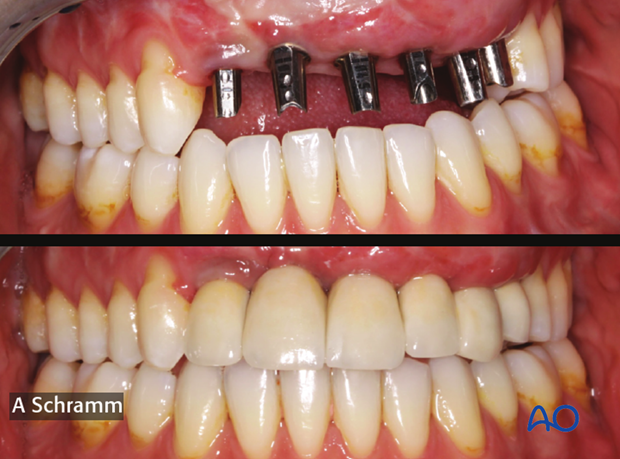Computer assisted dental implant surgery
1. Introduction
Indications
Any planned dental implants can benefit from virtual planning and drill guide construction.
Dental implant prosthetics requires accurate planning and execution. The advantages of using computerized planning is that implants can be three dimensionally placed virtually into locations determined by the prosthetic needs of the patient and available bone volume avoiding critical anatomical structures. Fabrication of drill guides then allows implants to be precisely placed into the desired locations.
Useful additional reading
2. Preoperative planning
Before 3D-data acquisition, a dental splint is fabricated based on plaster models of the patient. The missing teeth to be implanted are replaced with a barium sulphate-containing polymer based on a setup for simulation of the ideal prosthodontic restoration.
Referencing markers like titanium pins (arrows) are included into the splint. To avoid interference of registration markers and artifacts, the titanium pins should not be placed next to artifact-producing dental fillings and crowns. The second left premolar (arrow) has to be restored. To facilitate virtual implant placement, the ideal implant axis is drilled out of the polymer. The patient wears this splint during CT scanning.

After completion of the CT scan, the first step is detection of the titanium registration markers (blue).
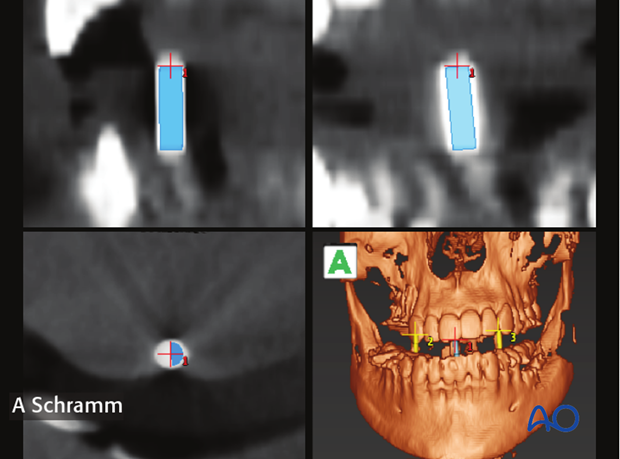
Selection and virtual insertion of implants
The dental implant planning software will include a 3D-database that contains various types of dental implants. Depending on the prosthodontic needs, the desired implant is chosen.
Virtual implant insertion is performed using multiplanar views.
The defect in the barium sulfate-containing polymer, showing the ideal implant axis, allows orientation and virtual insertion of the implants according to the prosthodontic requirement.
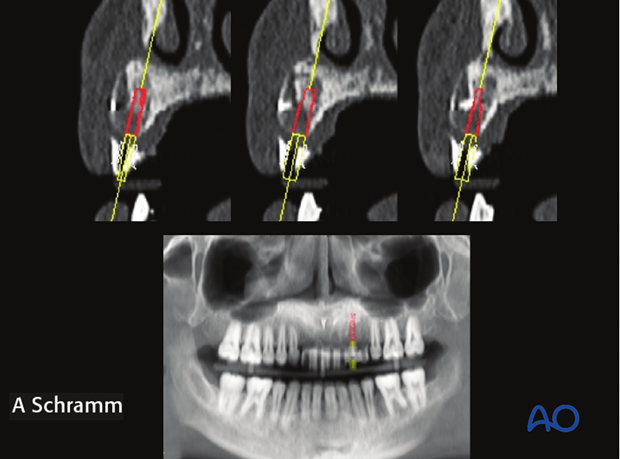
In the posterior mandible, the inferior alveolar nerve has to be detected before virtual implant placement.
The ideal implant position for the second molar region in this case is lingual to the alveolar nerve.
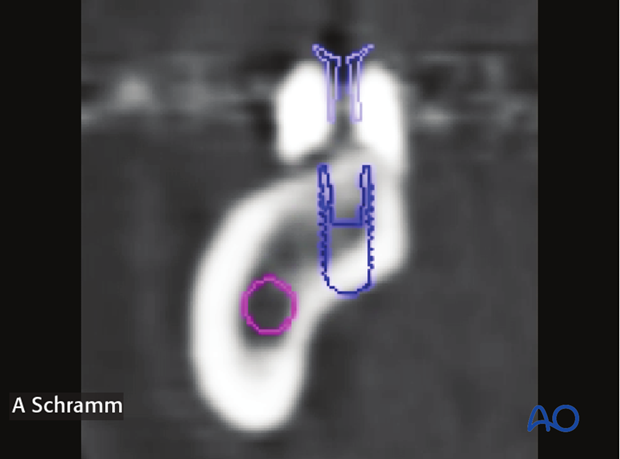
Based on 2D planning alone, as shown in the pseudo panoramic view, implant insertion would not be possible due to the risk of damaging the alveolar nerve. The same concern is shown in the postoperative panoramic X-ray, but because of 3D-guidance, the implant is lingual to the nerve.
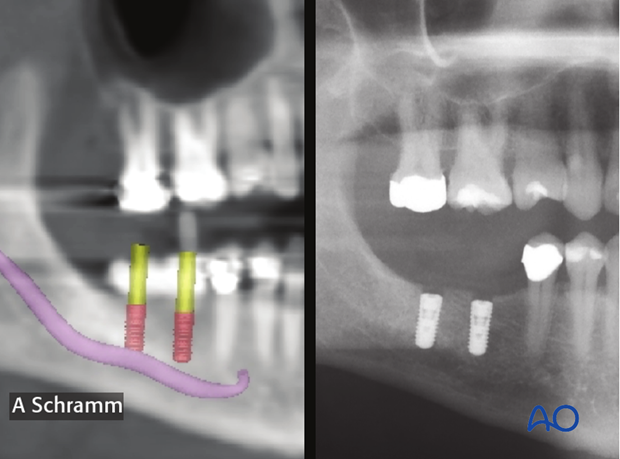
The postoperative panoramic X-ray gives the impression that the implant perforates the mandibular canal. 3D guidance however, guaranteed the preservation of the nerve.
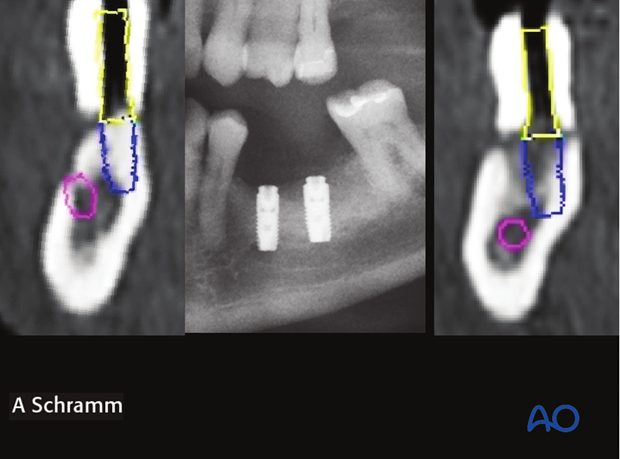
3D-planning ensures that the implant is covered by bone. If only 2D planning is available, the wrong implant length can be chosen resulting in the implant perforating the lingual cortex into the floor of mouth as seen in the pseudopanoramic X-ray...
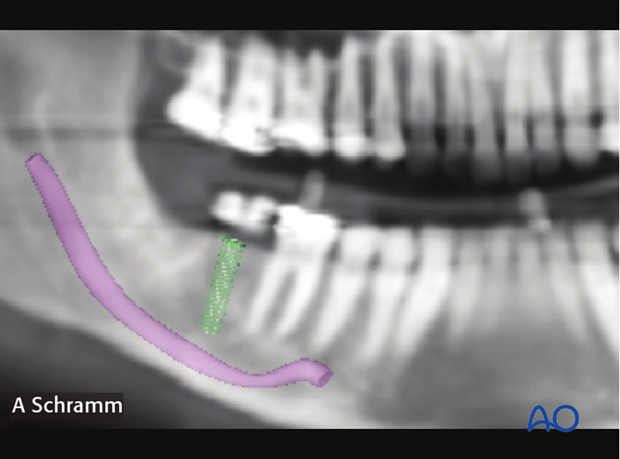
…compared to the 3D-simulation.
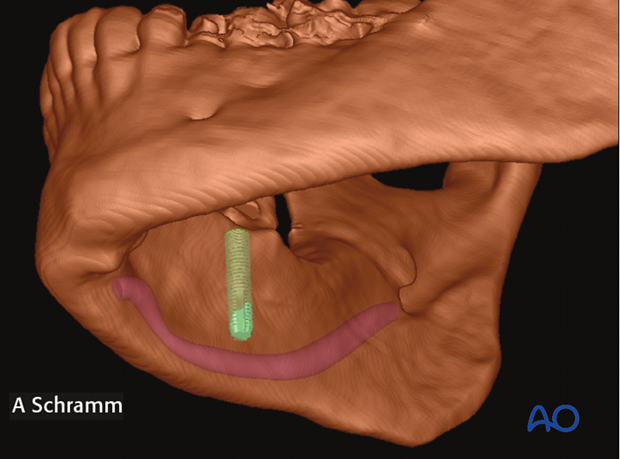
This image shows the correct implant length when the correct prosthodontic axis is planned.
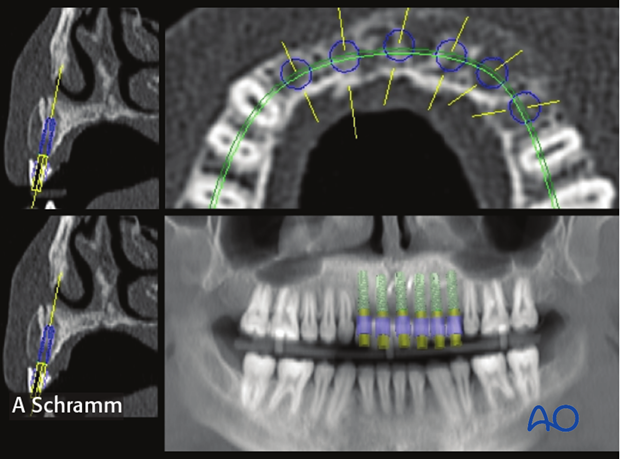
The size and positioning of drilling and insertion tubes is performed virtually.
These tubes serve as sleeves for guided implant insertion. The type of tubes which have to be used is determined by the implant system.
At the end of the preoperative planning, the position of all the insertion tubes may need to be revised.
The tube position should not interfere with bony structures in open treatment and should not interfere with soft tissue structures in trans gingival implant insertion.
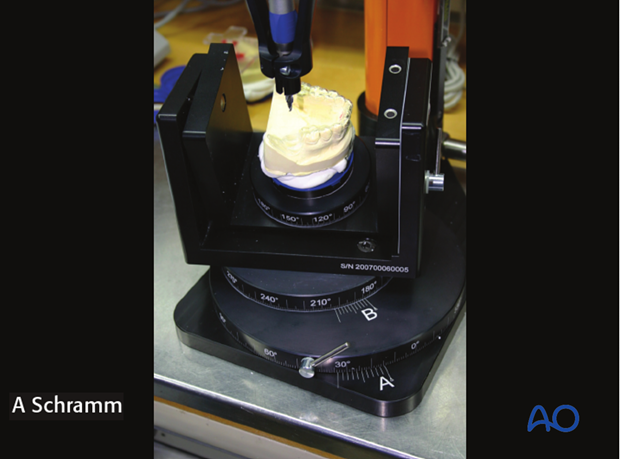
3. Fabrication of insertion guides
With the coordinates resulting from the virtual planning, holes are drilled into the dental splint and...

...titanium drilling and insertion tubes are placed.
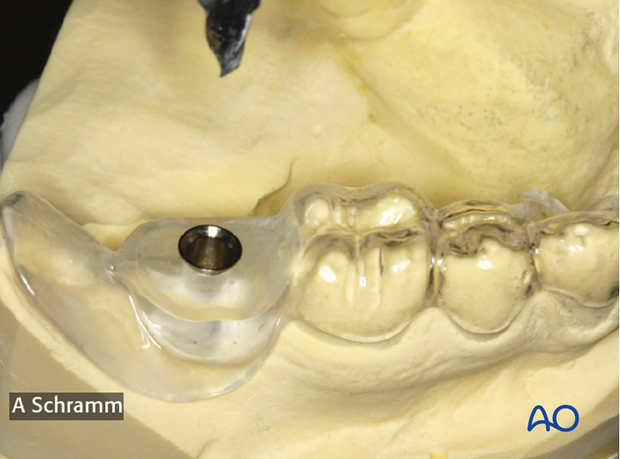
Various sizes of drill and insertion guides can now be placed in a defined position inside the titanium tube.
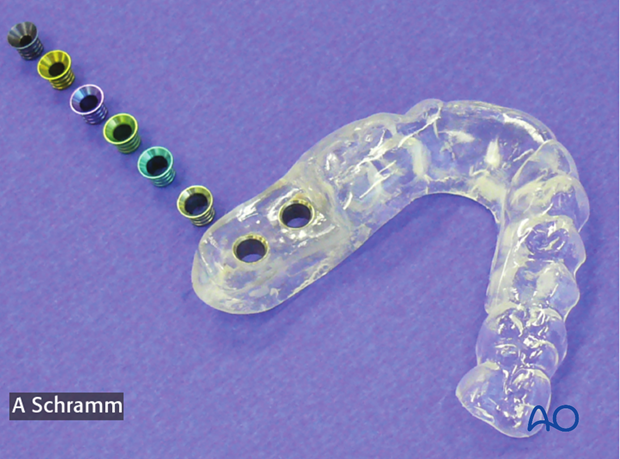
4. Guided oral implantation
After elevating the mucoperiosteal flap and removal of any osteosynthesis material (after bone grafting) the drill guide is inserted and guided drilling is performed. Each drill diameter can be guided using the different titanium drill sleeves.
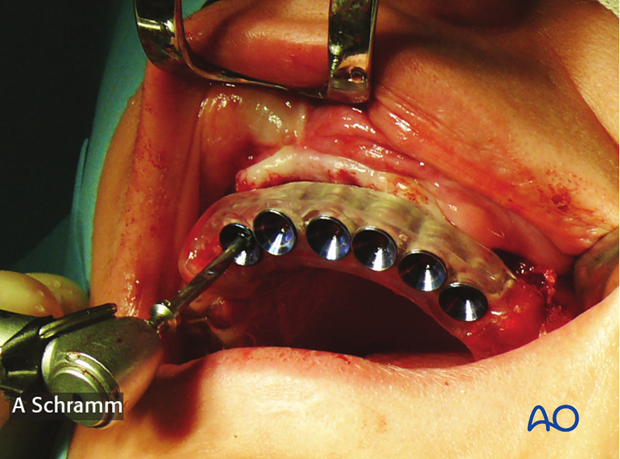
After preparation of all implant sites...
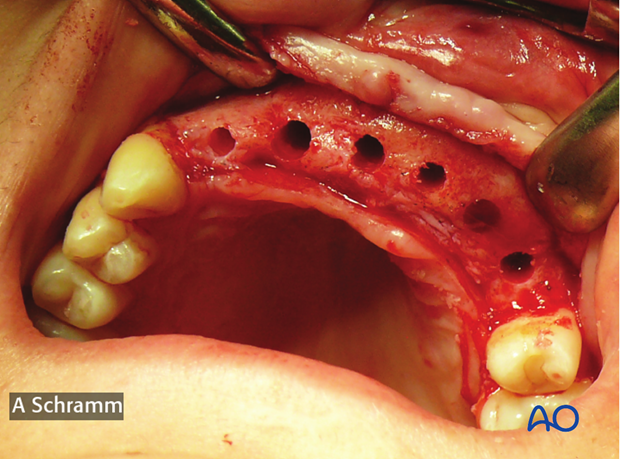
Guided implant insertion is performed to guarantee correct implant axis in respect to the prosthodontic planning.
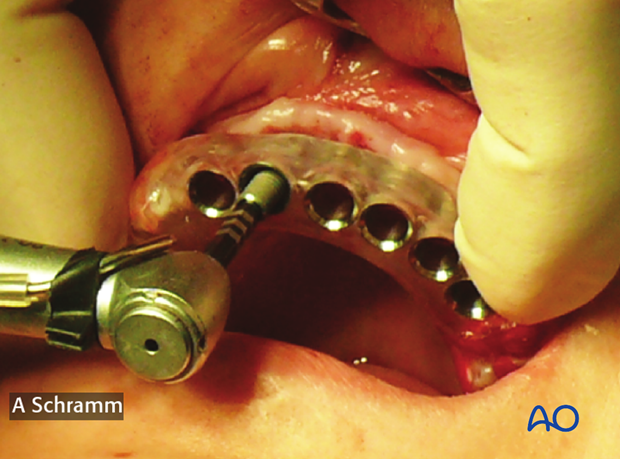
This picture shows the inserted implants.
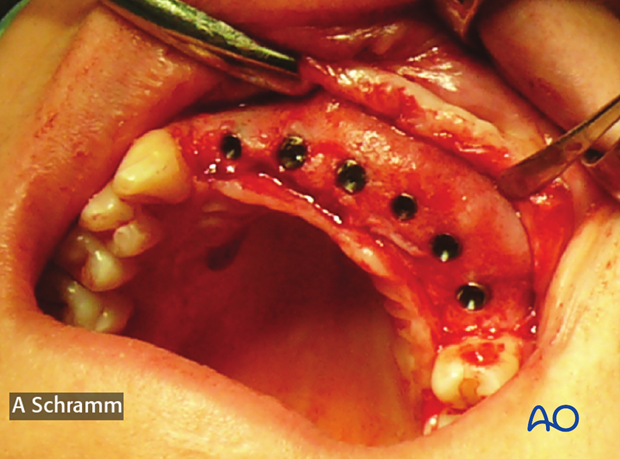
5. Prosthodontic restoration
After implant exposure, and any necessary soft tissue procedures, ...
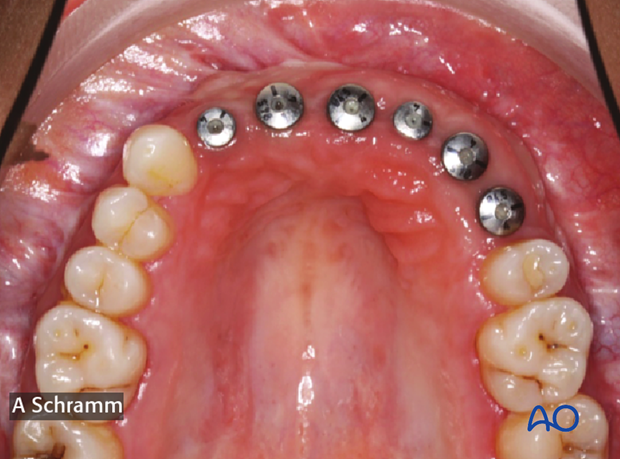
...titanium abutments are inserted, and prosthodontic restoration is completed.
